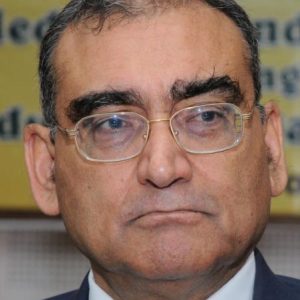
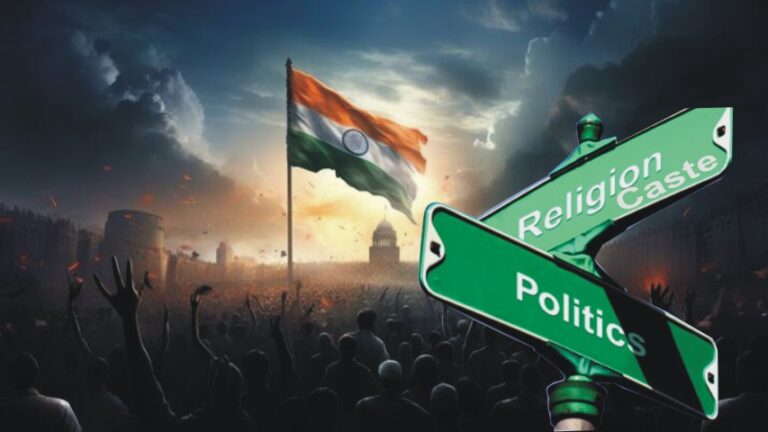
Elections for the Lok Sabha (India’s lower House of Parliament) will begin from 19th April, 2024, and will take place in 7 phases, the results being declared on 4th June.
I have explained Indian politics in a nutshell in the title of this article, but would like to elaborate.
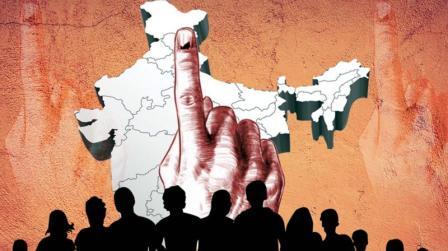 About 90% Indians, even those holding high educational qualifications, have casteist/ communal mindsets. When they go to vote they do not see the merit of the candidate, whether he is a good man or bad, educated or uneducated, etc, but only see his caste or religion (or the caste or community which the candidate’s party claims to represent).
About 90% Indians, even those holding high educational qualifications, have casteist/ communal mindsets. When they go to vote they do not see the merit of the candidate, whether he is a good man or bad, educated or uneducated, etc, but only see his caste or religion (or the caste or community which the candidate’s party claims to represent).
That is why there are so many MPs with criminal backgrounds.
So to my mind, neither Modi’s drama of inaugurating the ‘bhavya’ Ram Mandir in Ayodhya with much fanfare and hoopla, nor Rahul Gandhi’s drama of the Bharat Jodo Yatra with much razzmatazz and pageantry, will be of any consequence in the coming elections. What will matter will be ‘jaat biraadari’ (i.e. caste and religion).
I would like to give my own assessment of the prospects of the two all India parties, the Congress and the BJP.
The Congress
In 1947 the Congress had a huge reputation as the party which won India independence. This helped greatly in the elections thereafter.
But after a few years Congress leaders realised that they could not keep winning elections forever on that reputation alone. So they devised a caste-religious alliance which was this: Dalit+muslim+Hindu upper caste.
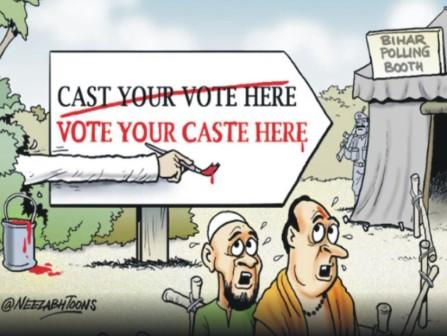 In UP, Bihar and many other north Indian states Dalits were about 15-20% of the population, Muslims were about 15-17%, and Hindu upper castes (i.e. Brahmins, Rajputs, Banias, Bhumihaars, etc) about 16-18%.
In UP, Bihar and many other north Indian states Dalits were about 15-20% of the population, Muslims were about 15-17%, and Hindu upper castes (i.e. Brahmins, Rajputs, Banias, Bhumihaars, etc) about 16-18%.
This gave the Congress about 50% of the votes, which was a formidable winning combination. To win an election in India one did not need to get 50% votes. A little over 30% would do.(because others are divided).
Hence for several decades after Independence Congress would sweep the polls in almost every state in India.
The problems for Congress began when dalits in UP, the biggest state in India, formed their own party, the Bahujan Samaj Party (BSP), with Kashi Ram and Mayawati as its leaders. Thereupon dalits in UP left the Congress en bloc, and joined the BSP.
The next setback for Congress occurred when despite Congress being in power in the Centre, the Babri mosque was demolished in December 1992 by a horde of Hindu bigots. The Muslims, blaming the Congress for this, left it en bloc, and in UP joined Mulayam Singh Yadav’s Samajwadi Party, and in Bihar Lalu Yadav’s RJD.
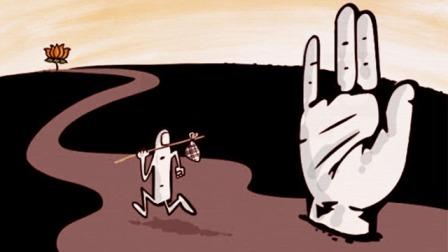 The Hindu upper castes shifted their allegiance to the right wing Hindu nationalist BJP.
The Hindu upper castes shifted their allegiance to the right wing Hindu nationalist BJP.
Thereafter Congress was left with no vote bank.
In India, individual voters are irrelevant. What matters are vote banks (of some caste or community). Now Congress has none (though it is trying to win back the Muslims). So I do not foresee much improvement of its performance in the 2019 parliamentary elections, when it won only 52 out of the 543 seats for which elections were held (BJP won 303).
The Bhartiya Janata Party ( BJP )
The BJP’s stronghold are the upper caste Hindus, i.e. Brahmins, Rajputs, Banias, Bhumihaars, etc. These will never leave the BJP come what may.
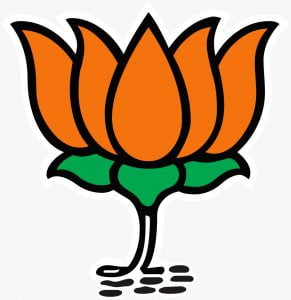
But they altogether comprise of only about 16-18% voters, whereas to win an election one requires about 31-32% votes. So how to get another bloc of 15-16% votes, apart from the upper caste Hindu votes, is the basic problem for the BJP. To win it must get a section of the OBC (Other Backward Castes) and Dalit votes, and not rely on upper caste Hindu votes alone.
The BJP solved the problem mainly by winning over a section of the OBCs and of dalits.
The OBCs are the intermediate castes in the caste social order i.e. below upper castes, but above the dalits. OBCs are not one single caste, they are numerous castes, the largest in number being Yadavs.
In UP, the biggest state in India, OBCs are about 40% of the population, of which Yadavs constitute about 10%. The remaining 30% are non Yadavs e.g. Kurmi, Lodh, Kushwaha, etc.
There was a grievance among non Yadav OBCs that the Samajwadi Party of Mulayam Singh Yadav (and thereafter, his son, Akhilesh Yadav) benefits only Yadav OBCs and not non Yadav ones. Thus, it was propagated that plum postings of District Magistrate, Police daroga, etc were given mostly to Yadav officers.
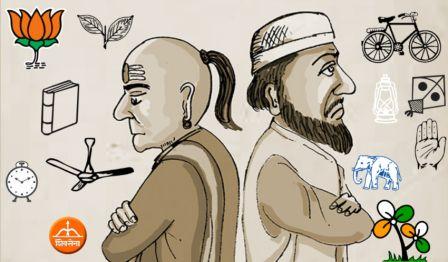
This feeling was subtly fanned by the BJP, and the result was that a large section of non Yadav OBCs went over to the BJP.
The same happened about the non Jatav dalits, who felt that Mayawati favoured only Jatavs.
However, these non Yadav OBCs and non Jatav dalits who voted for the BJP in the 2014 and 2019 parliamentary elections, are not its reliable allies (like the Hindu upper castes). They may shift their allegiance to the Congress or some other party.
The BJP claims to represent the Hindus of India, and Hindus constitute about 80% of India’s population. However, they are ordinarily divided on caste lines. To unite them all in its fold, the BJP must incite communal passions, and must incite hatred against Muslims. In fact it was the Ram Janmabhumi agitation which brought it to power.
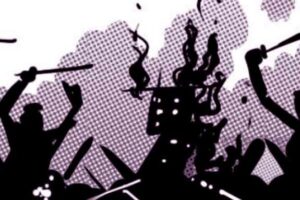 So I fear some communal incident is in the offing, though what it will be no one can predict. It may be a mob of right wing Hindus demolishing the Gyanvapi Masjid (just as the Babri Masjid was demolished in 1992), with the police turning a Nelson’s eye (as it did in 1992).
So I fear some communal incident is in the offing, though what it will be no one can predict. It may be a mob of right wing Hindus demolishing the Gyanvapi Masjid (just as the Babri Masjid was demolished in 1992), with the police turning a Nelson’s eye (as it did in 1992).
It may be public desecration of the Holy Quran or some insult to the Prophet, causing widespread communal riots. Whatever it may be, it will.raise the communal pitch to a high level, benefiting the BJP.
Having attained power in 2014, after being in opposition for decades when Congress was ruling, the BJP would not like to give up power. Hence it will use every ‘saam, daam, danda, bhed’ to remain in power. After all a parliamentary election is like a war for the Sultanate of Delhi, and history bears witness to the fact that rivers of blood have flown in such wars. ![]()
Also Read:
Three New Criminal Laws – Some Flaws That Are Prone To Gross Misuse And Abuse
The effect of religious polarisation in India
Congress – Where is it heading?
AI To Help Win Electoral Battles
A great judgment by the Indian Supreme Court
Shilanyas was a mistake, but Rajiv was not aware of unlocking Babri

Disclaimer : PunjabTodayTV.com and other platforms of the Punjab Today group strive to include views and opinions from across the entire spectrum, but by no means do we agree with everything we publish. Our efforts and editorial choices consistently underscore our authors’ right to the freedom of speech. However, it should be clear to all readers that individual authors are responsible for the information, ideas or opinions in their articles, and very often, these do not reflect the views of PunjabTodayTV.com or other platforms of the group. Punjab Today does not assume any responsibility or liability for the views of authors whose work appears here.
Punjab Today believes in serious, engaging, narrative journalism at a time when mainstream media houses seem to have given up on long-form writing and news television has blurred or altogether erased the lines between news and slapstick entertainment. We at Punjab Today believe that readers such as yourself appreciate cerebral journalism, and would like you to hold us against the best international industry standards. Brickbats are welcome even more than bouquets, though an occasional pat on the back is always encouraging. Good journalism can be a lifeline in these uncertain times worldwide. You can support us in myriad ways. To begin with, by spreading word about us and forwarding this reportage. Stay engaged.
— Team PT


Copyright © Punjab Today TV : All right Reserve 2016 - 2024 |